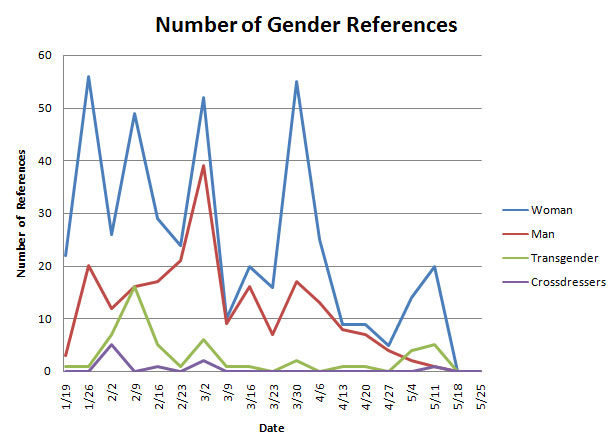First world and third world
I wanted to bring this up on the blog before I forgot about it – the distinction between the issues of the first world and of the third world was kind of problematic from my viewpoint as the technology teacher. She teaches at a school which received a donation of a computer lab, but still doesn’t have a budget for paper. A lot of the students live far under the poverty line, and this unfortunately isn’t uncommon in public city schools in the US. Yes, it’s the first world, but a lot of the students I worked with at this school and others through education classes wouldn’t have lunch if the school didn’t provide it. In the summer, they just don’t get it.
For them, access to technology goes beyond gender differences and gender rights. The people they are expected to compete with, in other schools, get to learn with an adequate number of books and teachers, and maybe even Smartboards. While the particular school I was talking about does an amazing job with what they have, I think technology is somewhat repressive in this case, when certain types of students are denied access to knowledge related to technology that students at other school are as used to as breathing. In education, technology is interwoven with dynamics of priviledge and who gets to learn what. Knowledge of technology grants access to certain parts of society, which can be wonderfully empowering, but at the same time a lack of knowledge excludes vast chunks of people. This whole idea has been troubling me lately, but I think I have to do some more thinking.
Comments are closed.

I agree that the distinctions between ‘first world’ and ‘third world’ are certainly problematic, and the conversation we had yesterday during the panel was particularly so. I found it difficult trying to reconcile what I was saying in character (as Waris Dirie) with what I might’ve said had I been myself. It was particularly tough because I feel like Dirie can get away with saying things like ‘first world gender issues are irrelevant compared to those of the third world’. I think she has a right to say those things, because of her history (she grew up in a nomadic clan in the desert and was a victim herself of FGM). But at the same time she also represents a conflict because she currently lives incredibly comfortably off of her income as a supermodel and holds a much higher class standing than she previously did. In addition to this, she may even be slightly out of touch with ‘first world’ gender issues and stereotypes, seeing as her line of work tends to perpetuate them.
It’s complicated and I think that class relations definitely add to this interweaving of issues and standpoints. Class is always difficult to talk about, particularly in a place like the US, where the gap between classes keeps getting wider, but the country also sees itself as having some kind of responsibility to less well off (‘third world’) nations. I think we should definitely talk more, however, about the relationship of class with regards to gender and technology and not shy away from the problematic questions that could arise.
I’m actually really glad you picked the character you did, because I think as a class we were mostly discussing technology in a relatively Western, upper middle class perspective. And I think you were right to point out that some of the gender issues in the third world are maybe more critical – when you’re talking about the difference between institutionalized violence toward women versus representation in the sciences. It made me think about what I thought about technology in relation to American class issues, but I also felt I couldn’t really talk about that while speaking as the technology teacher.